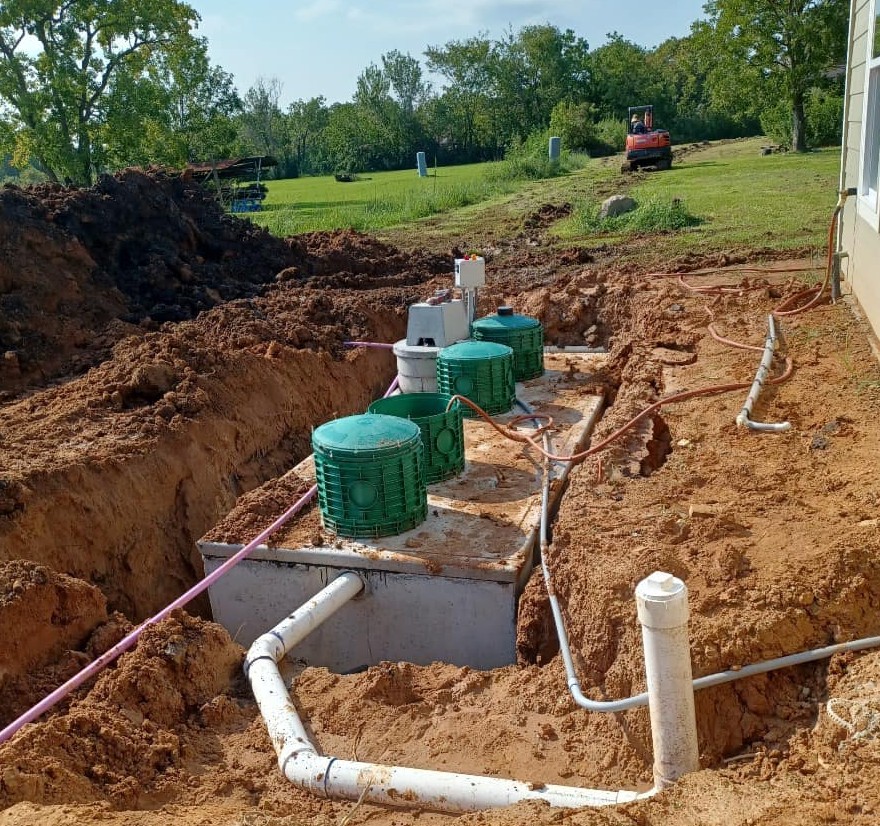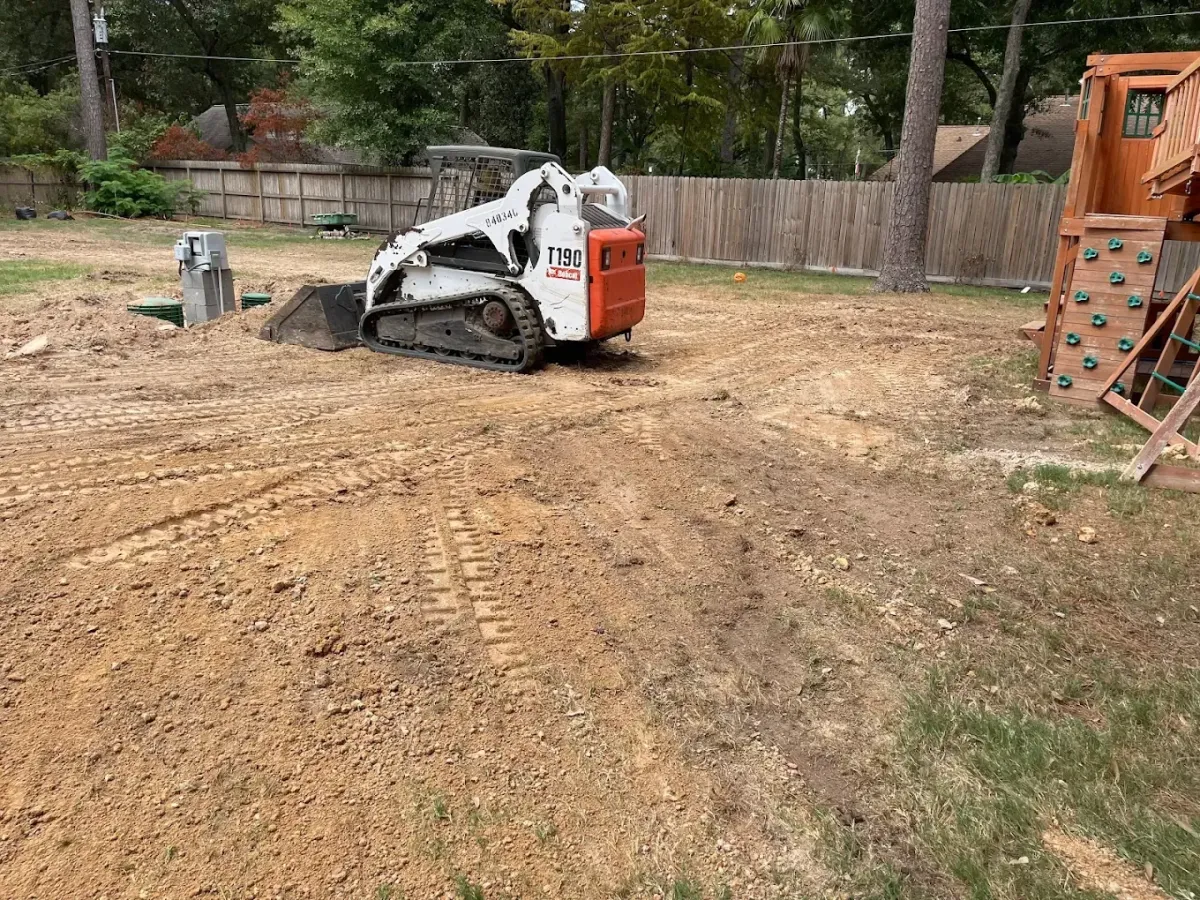
Serving Texas Counties: Harris, Montgomery, Waller, Fort Bend, Austin, Grimes and Brazoria
Septic Installation near Harris County, Texas
Brown Aerobic Septic Specialists is Committed to superior quality and results!

AVOID COSTLY MISTAKES:
Do NOT hire an excavating contractor without first reading our free guide:
The ULTIMATE Excavation & Septic "Success Guide."

Septic Installation near Harris County, Texas: Clear Answers, Real Results
If you live outside municipal sewer service in Harris County, Texas, a properly designed and installed septic system isn’t a luxury—it’s essential infrastructure. This page breaks down what Septic Installation near Harris County involves, why it pays to choose qualified professionals, and the step-by-step process so you know exactly what to expect from the first call to final approval.
How Can We Help?


Why a New Septic System Matters in Harris County
Local soil conditions, seasonal rainfall, and neighborhood density all influence how wastewater leaves your home and returns safely to the environment. A code-compliant system protects your health, preserves groundwater, and supports your property’s value. In fast-growing communities across Harris County, Texas, thoughtful septic planning keeps yards usable, avoids odors and backups, and prevents costly violations.
Key Benefits of Septic Installation near Harris County
Made for your property. A custom design accounts for soil percolation rates, lot size, setbacks, and preferred yard uses, so your drains, patio, or future shop still fit the plan.
Lower lifetime costs. When the tank, treatment components, and drain field are sized correctly, pumps work less, components last longer, and service visits are simpler and cheaper.
Reliable performance in Texas weather. Systems built for Gulf Coast downpours and heat cycles handle surge flows and protect the field from saturation.
Faster approvals. Designers familiar with Harris County processes prepare complete submittals, reducing back-and-forth and helping you pass inspections the first time.
Resale confidence. Buyers and lenders look for documentation. A modern, permitted system with service records gives your listing an edge.
Benefits of Hiring a Pro for Septic Installation near Harris County
Right system, first try. A professional clarifies whether a conventional gravity system, a pump-assisted layout, an aerobic treatment unit, or a drip dispersal field is best for your site.
Accurate budgeting. You’ll see line-item estimates—design, permitting, excavation, tanks, distribution, electrical, start-up, and restoration—so there are no surprises mid-project.
Safe construction. Licensed crews excavate with utility locates, trench safety, and soil stability in mind, protecting your home, neighbors, and driveway.
Code compliance. Documentation, setbacks, and inspections are handled to Harris County and Texas standards, reducing the risk of fines or rework.
Lifetime support. After installation, you’ll know the service schedule, what to avoid flushing, and how to protect your drain field.
What Impacts Cost in Harris County, Texas
Costs vary by tank size, soil type, design, access for machinery, and drain field configuration. Accurate planning protects from future repair expenses and avoids digging twice.
See Our Excavation & Septic Services

✔️ Commercial Excavation
✔️ Residential Excavation
✔️ Septic inspections
✔️ Septic system pumping
✔️ Septic tanks - aerobic systems
✔️ Septic installation
✔️ Drain field replacement
✔️ Sewer repairs
Quality Services Launched FAST!

✔️ Camera Inspections
✔️ Pipe Jetting and thawing
✔️ Trenching
✔️ Grease trap pumping
✔️ Septic repairs
✔️ Septic maintenance contracts
What Are You Waiting For?
The Process for Hiring a Septic Installation near Harris County
1) Discovery call. Share address, household size, water usage, and any past septic issues.
2) Site evaluation. A visit confirms setbacks, slope, drainage patterns, and access for equipment. Soil testing determines how your field should be designed.
3) System design. Based on soil results and Texas codes, you get a stamped design outlining tank size, treatment style, and field layout.
4) Transparent proposal. Receive a clear scope so you understand excavation, electrical work, restoration, and materials.
5) Permitting and approvals. Submittals go to the proper authorities, and inspections are scheduled.
6) Installation. Crews excavate, set the tank, install distribution components, and backfill safely.
7) Start-up and testing. Pumps, blowers, alarms, and treatment equipment are tested and calibrated.
8) Final inspection. Officials verify code compliance and approve the system.
9) Owner training. You’ll learn maintenance tips, flushing rules, and drain field protection habits.
Choosing the Right System Type for Your Property
Conventional gravity. For good soils with a natural slope.
Low-pressure dosing. Uses a pump to deliver controlled doses to the drain field.
Aerobic treatment units. Ideal for challenging soils or tight lots.
Drip dispersal. Good for shallow or landscaped areas where distribution must be precise.
How to Prepare Your Site
Mark utilities, clear access paths, safeguard sprinklers and landscape features, and coordinate system layout with any future driveway, garage, or patio plans.
Care Tips After Installation
Use water gradually, avoid grease and wipes, maintain grass over the field, and schedule professional service—especially for aerobic units.
Ready for Septic Installation near Harris County?
Whether building new or replacing an old system in Harris County, thoughtful design and careful installation make all the difference. Start with an evaluation, review plans clearly, and insist on documentation and training. With the right approach, Septic Installation near Harris County protects your property, your health, and your investment for decades.
Hours: Mon-Fri 8AM-4.30PM
Extended hours by appointment only.
Address: 17618 South drive Cypress Texas 77433
All rights reserved | Client Support Area